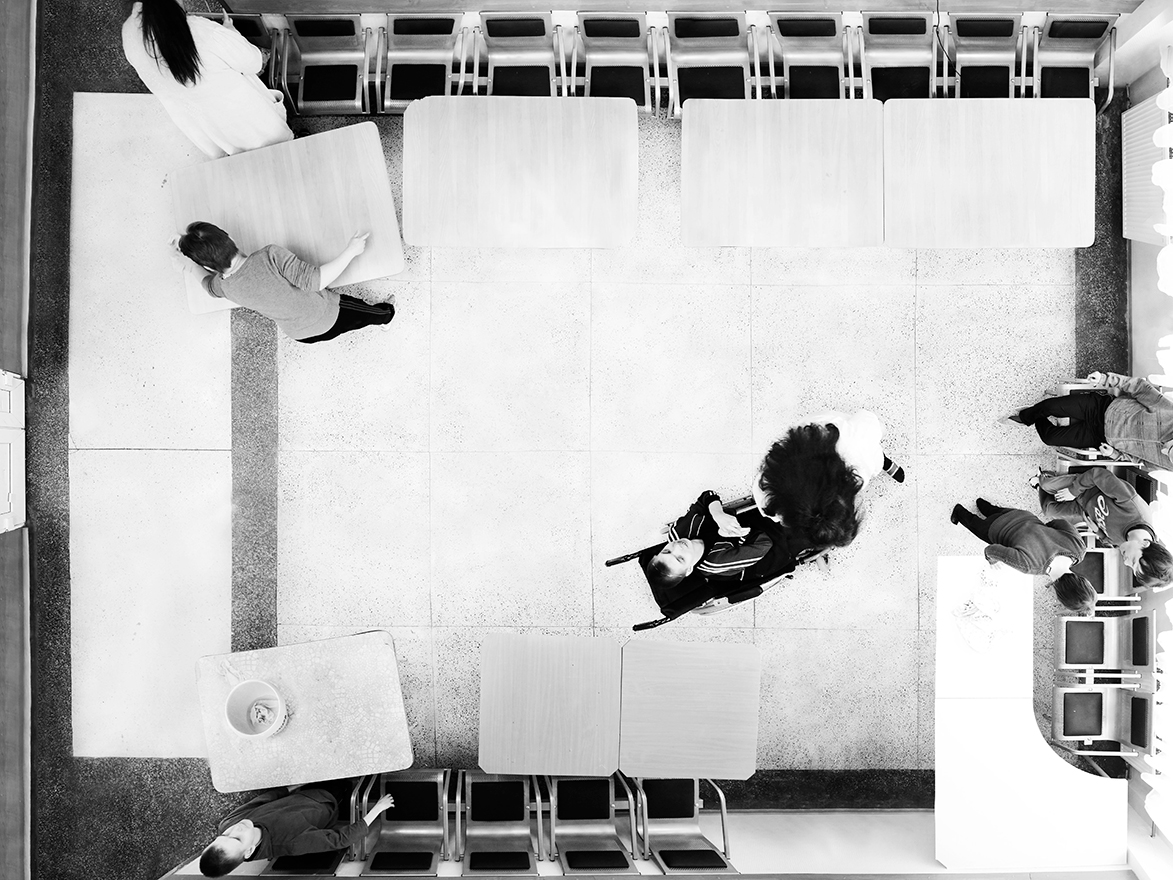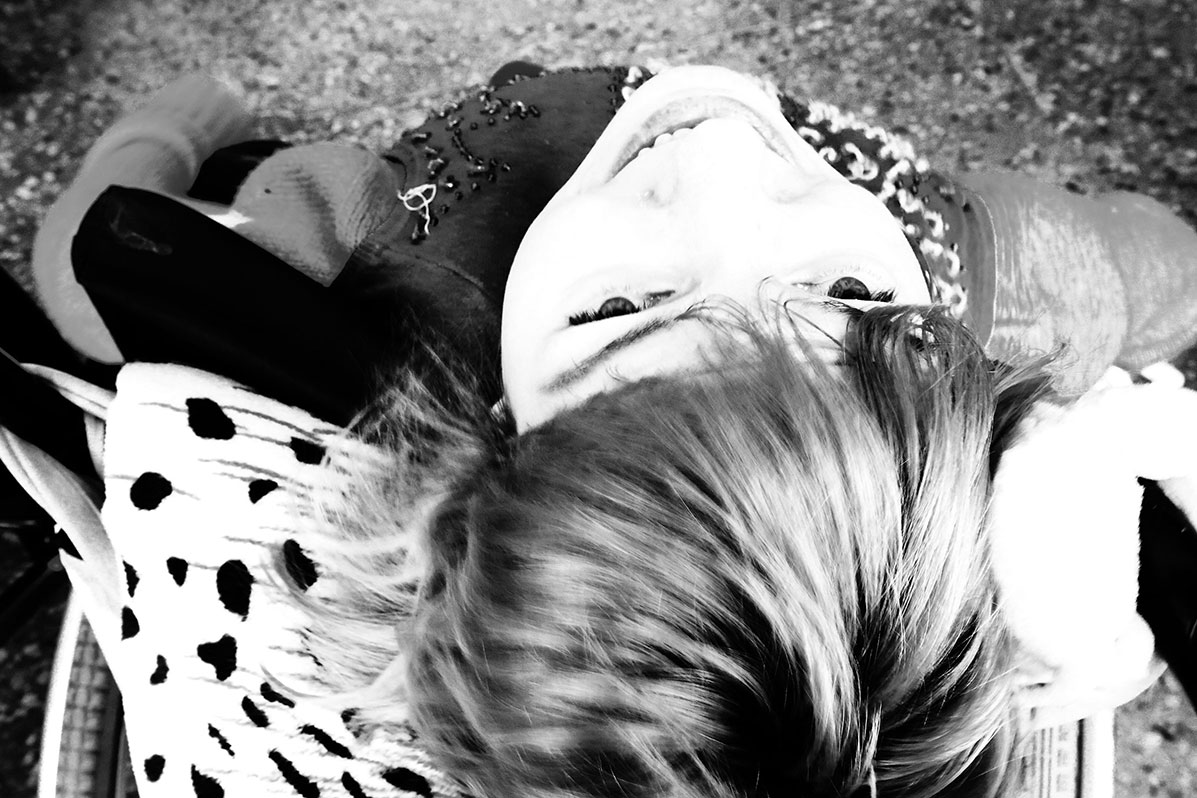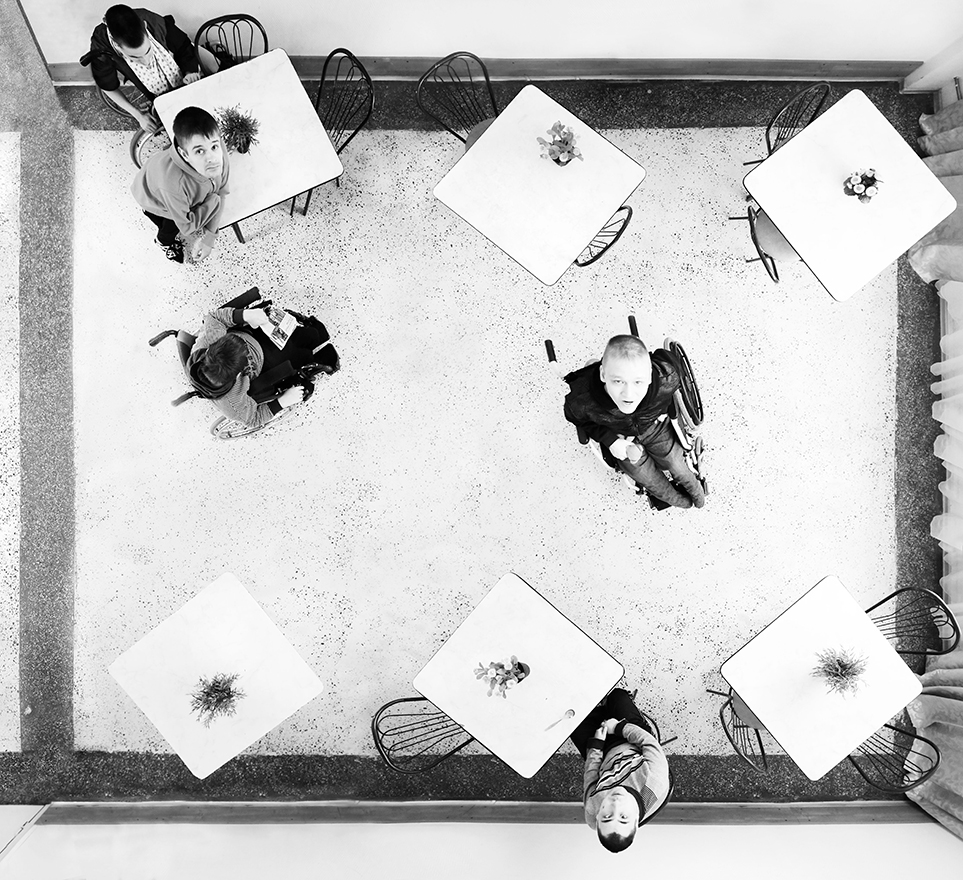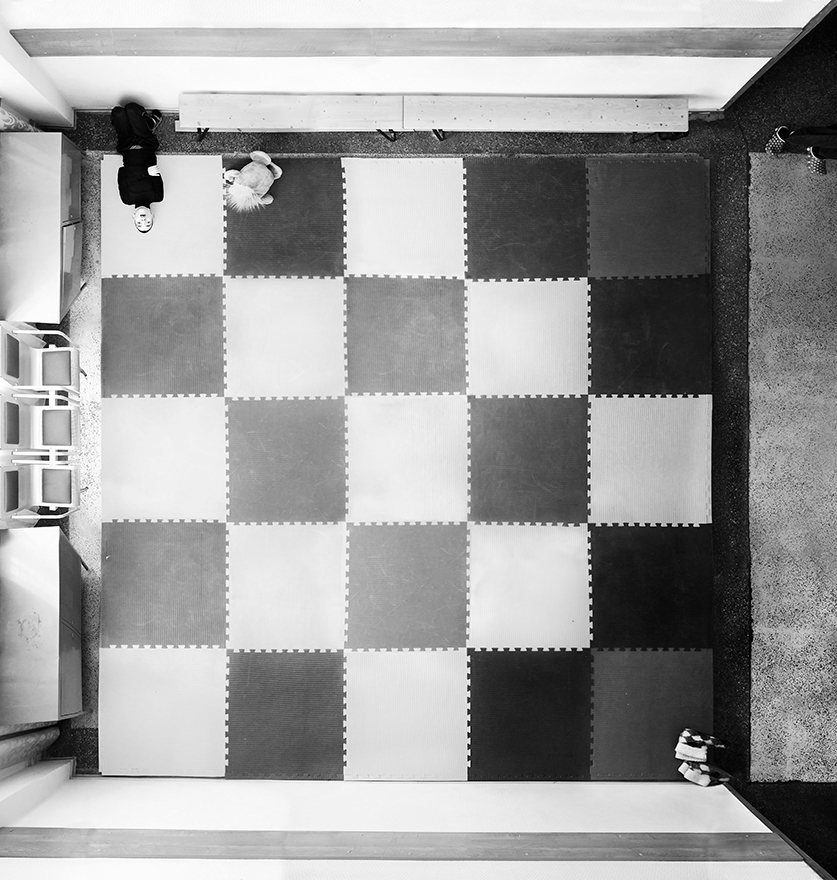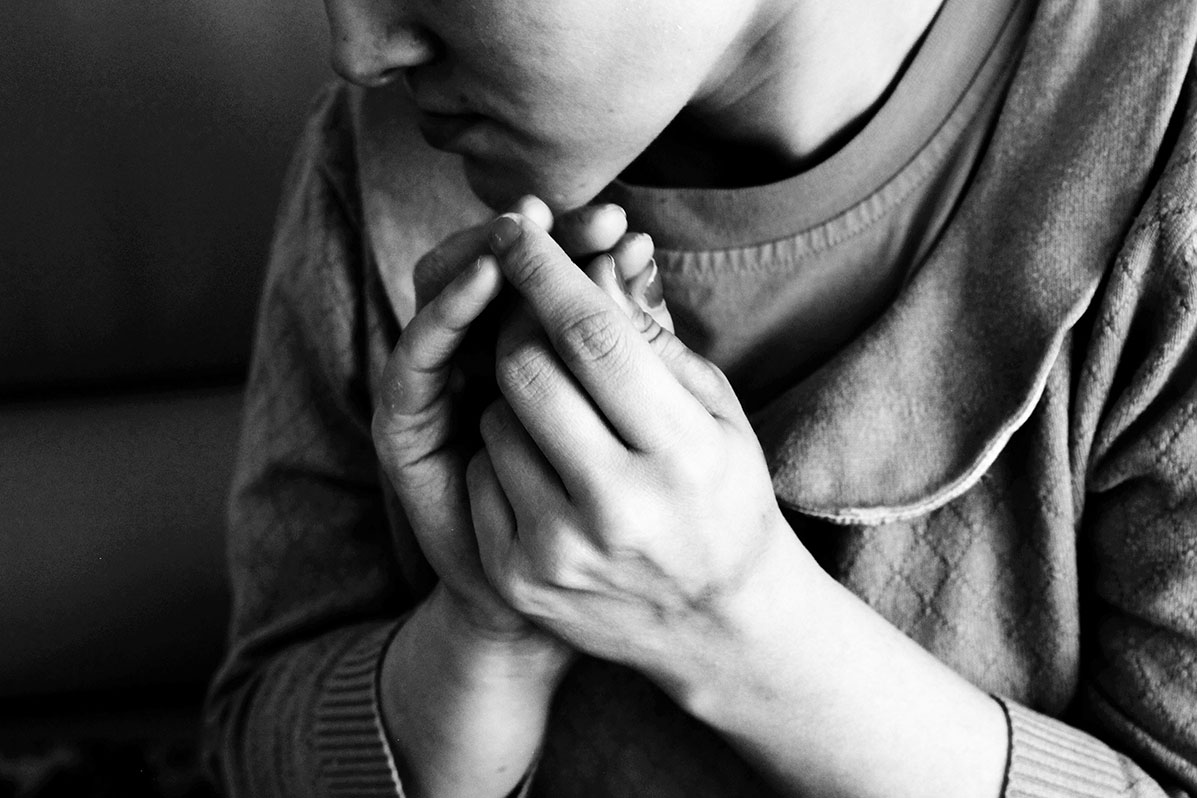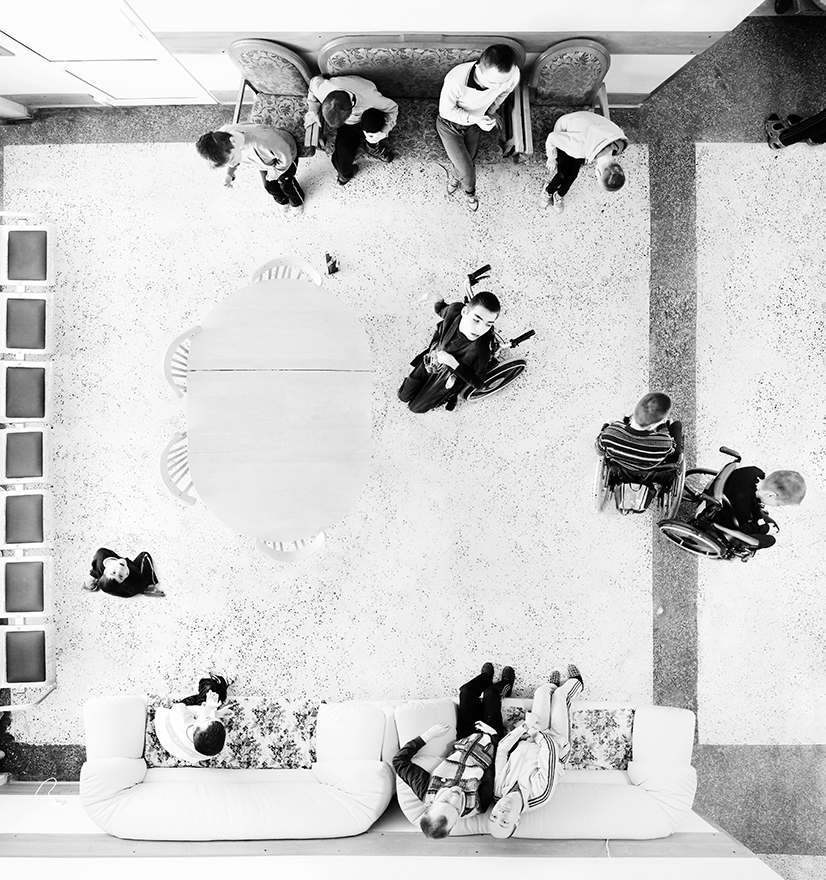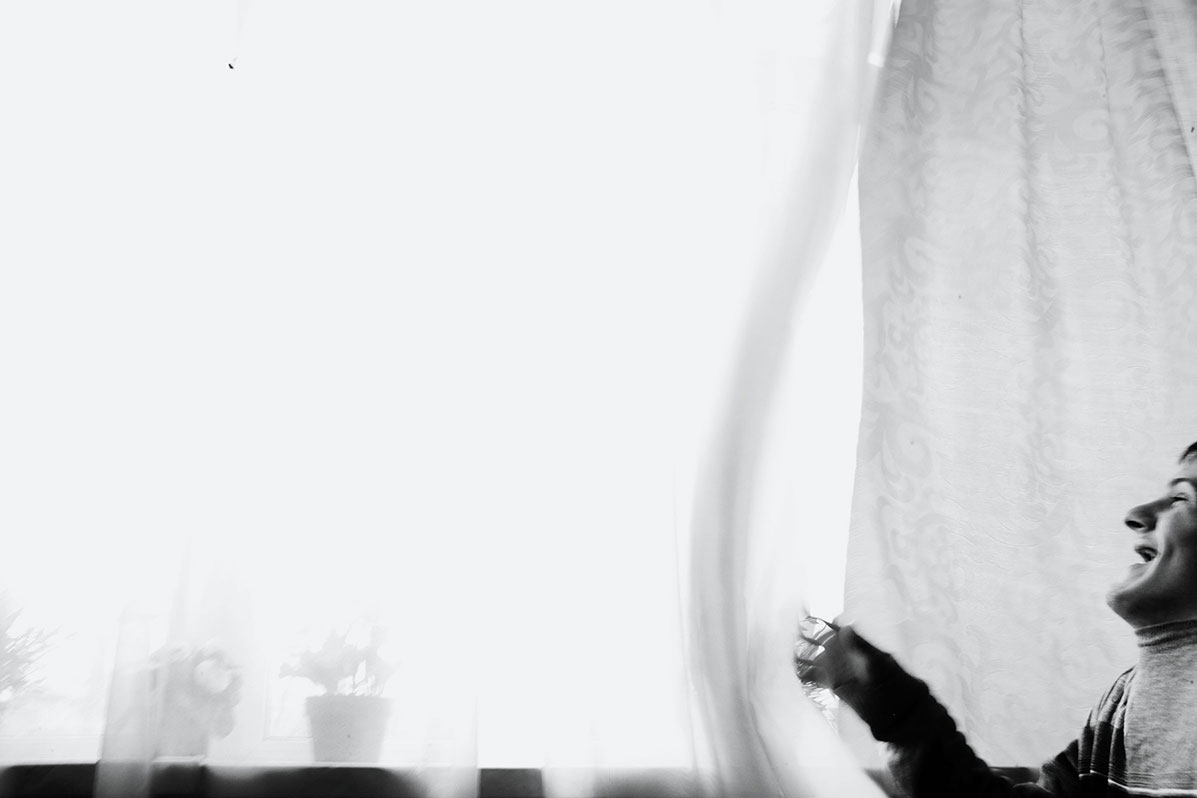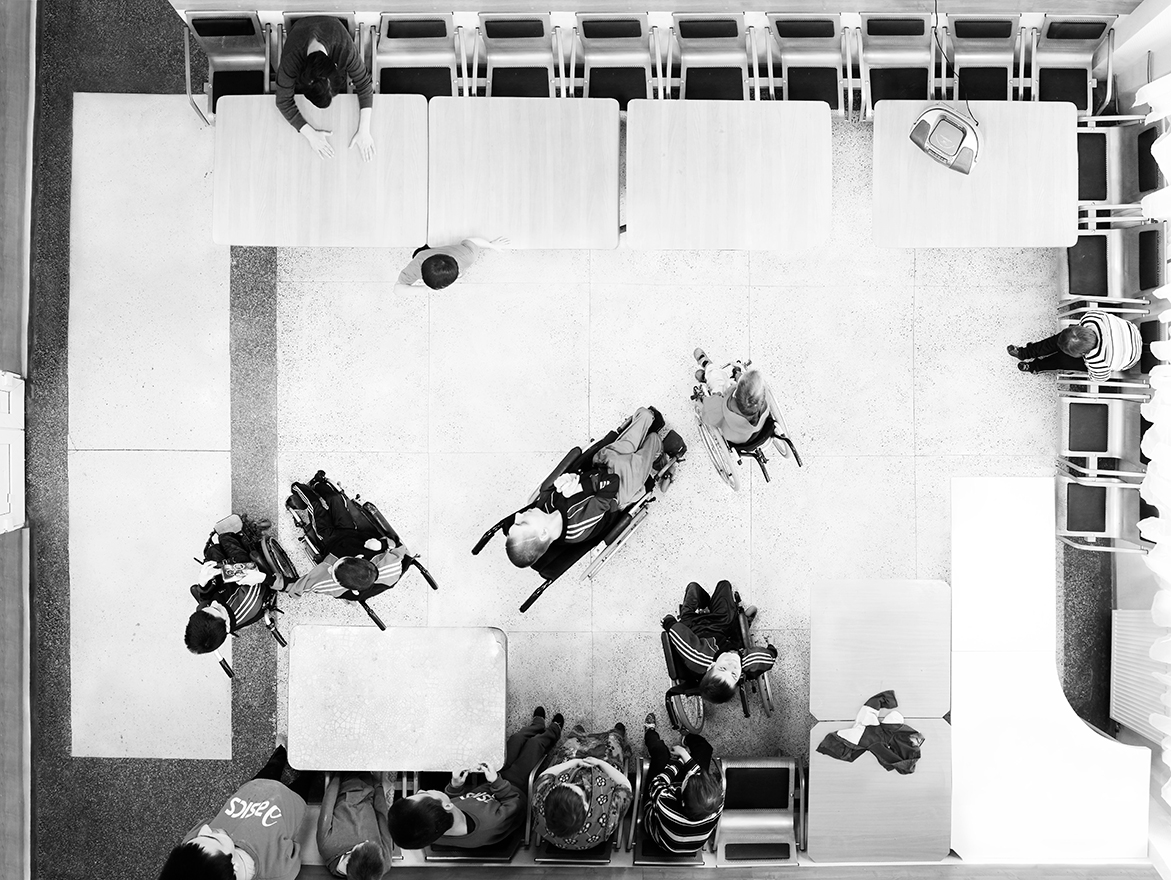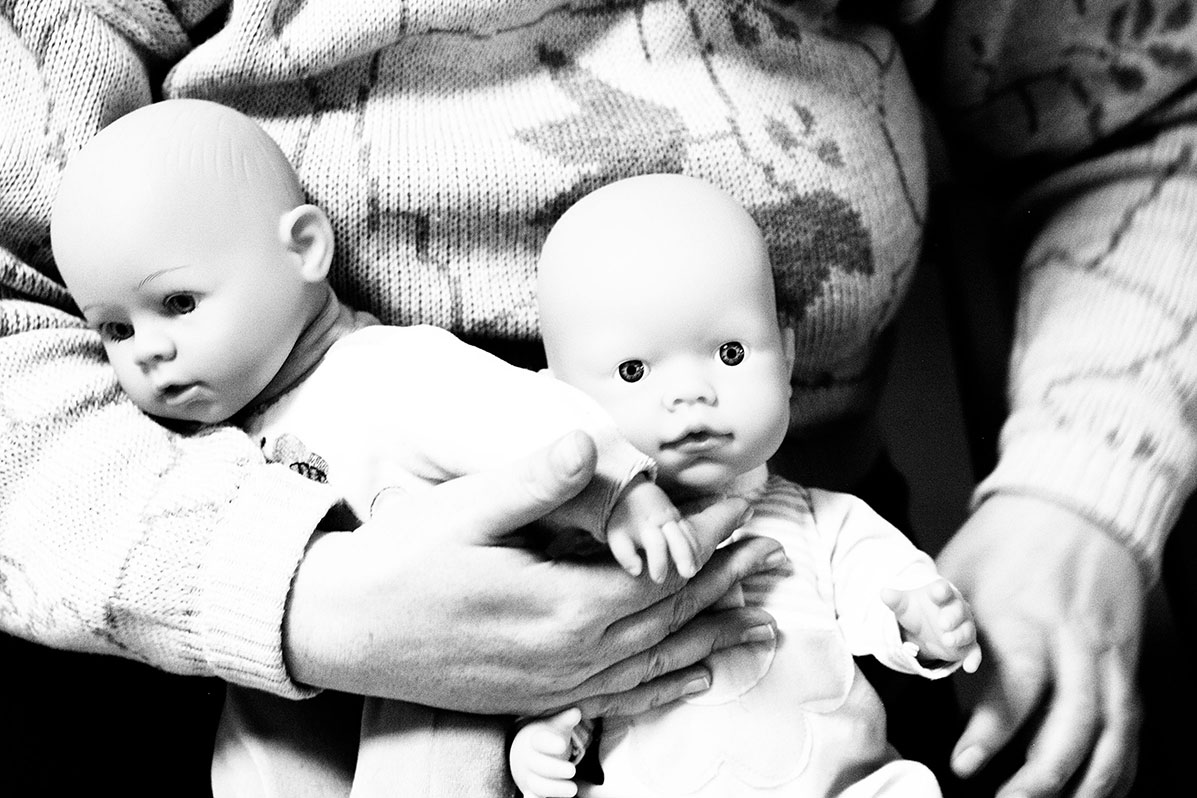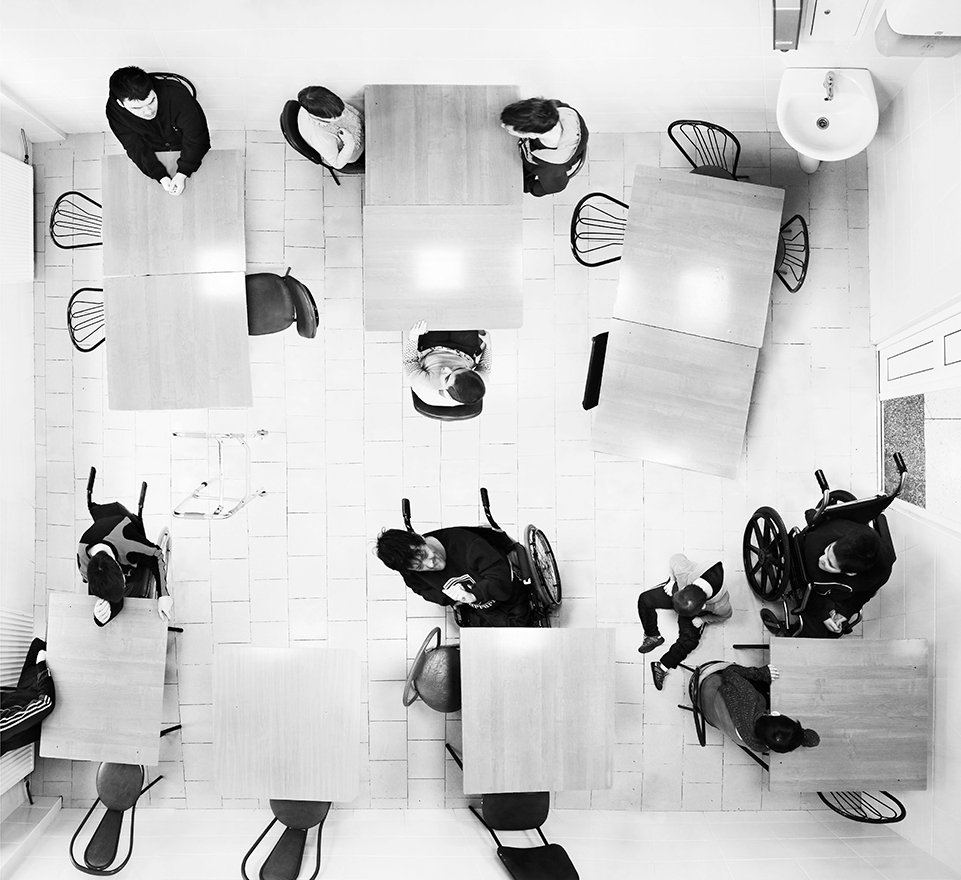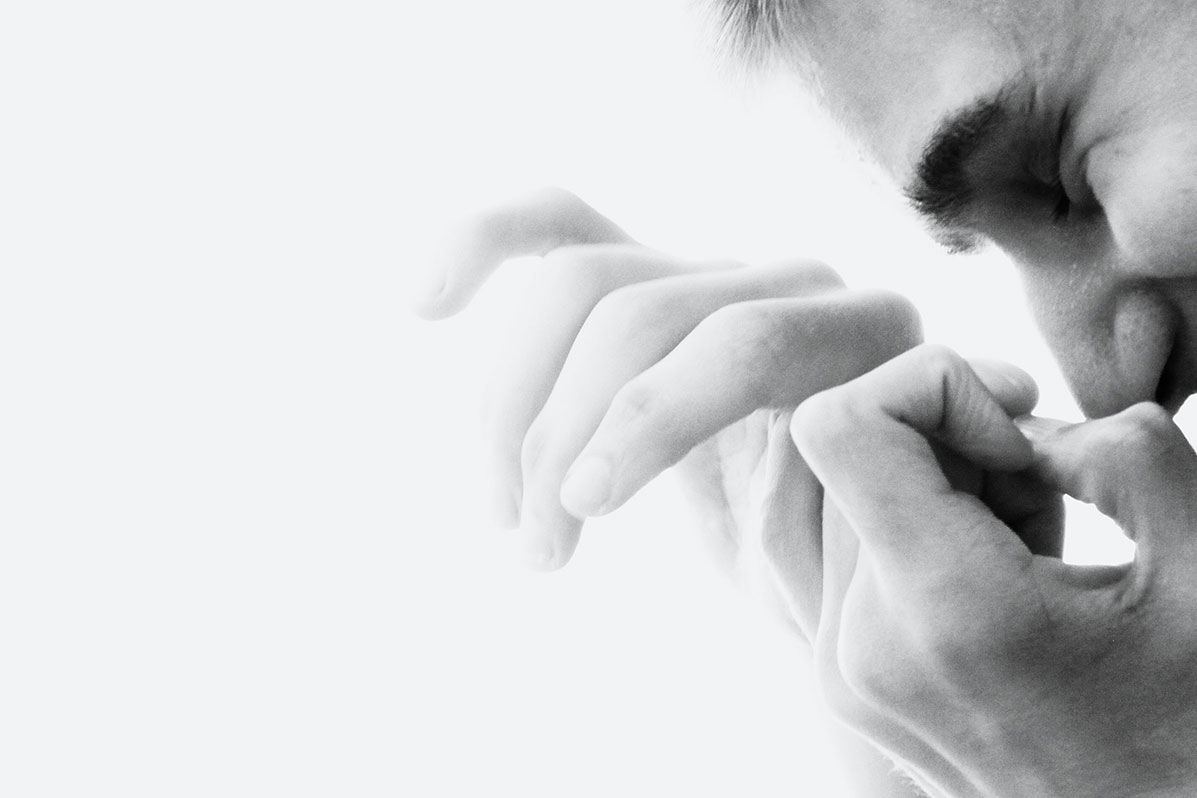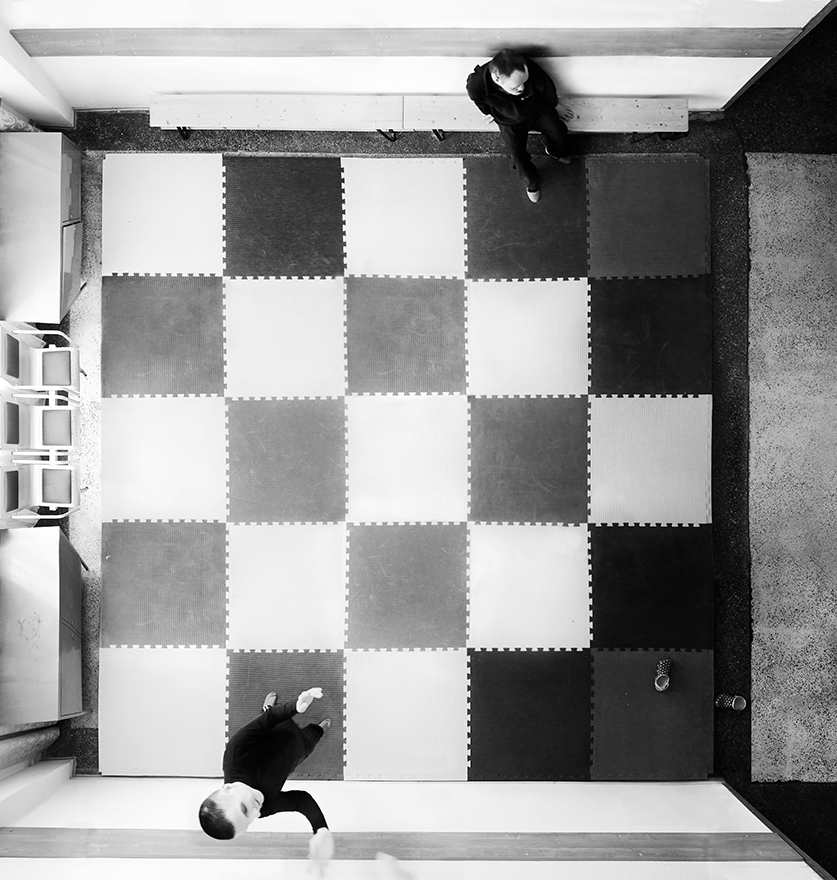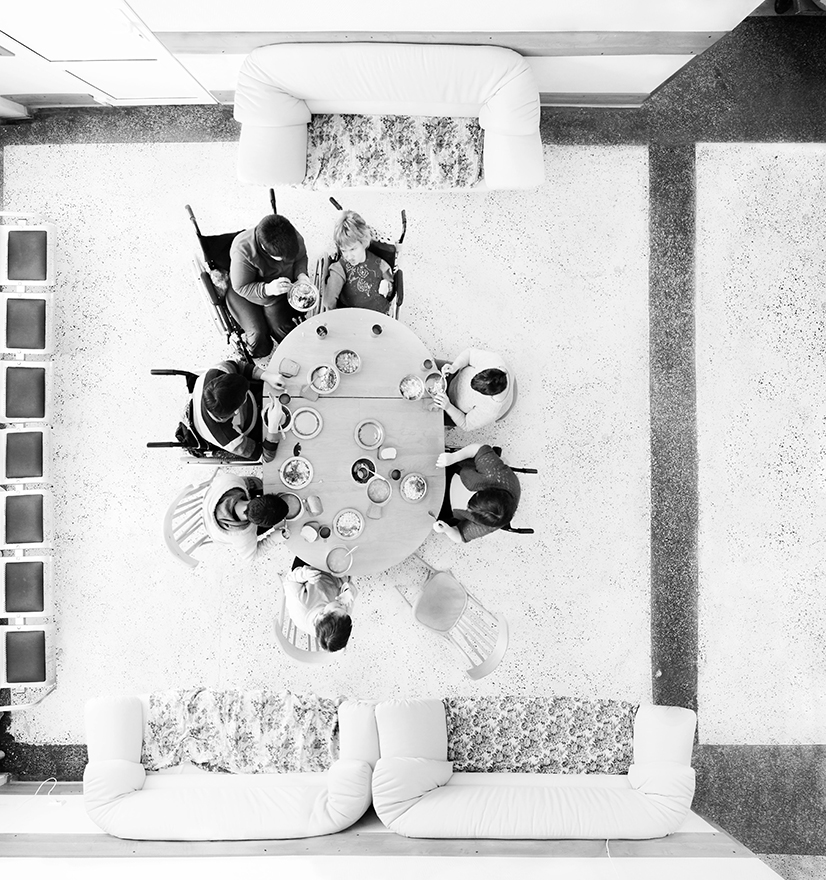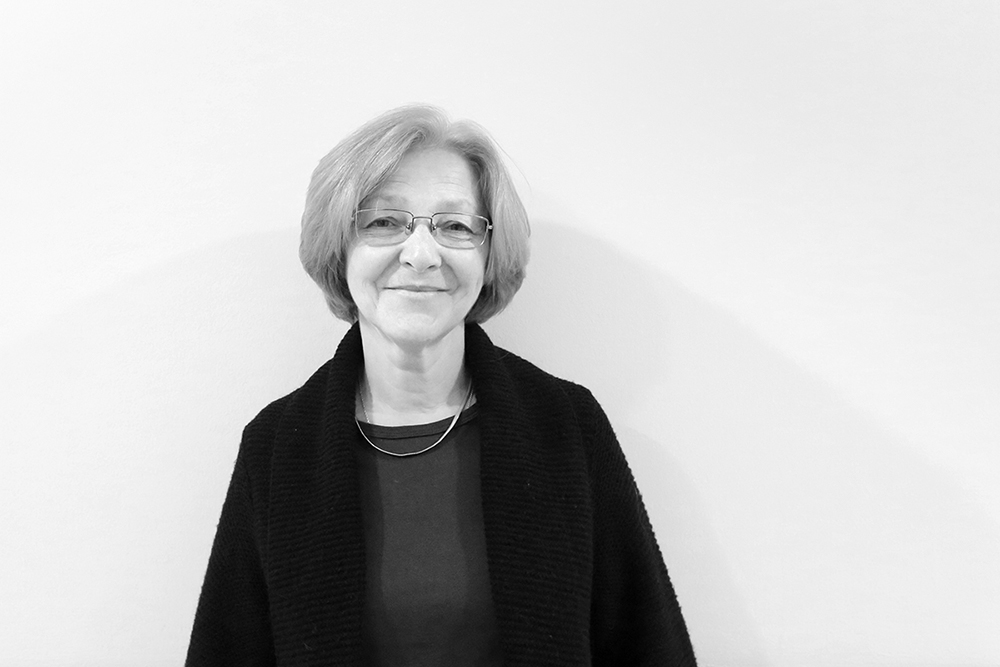04.Forest
You get out of the asylum, and again find yourself on the road. All around you is forest.
When you leave, the road seems different, as if it became longer.
Although usually it is the other way around – the road back seems shorter.
Perhaps everything slows down – time flows in the asylum and in the city at a different pace.
Here, on this road, appears a clearing in the forest, where you can stop. Layers of thought change places,
and your thinking starts to proceed in a different sequence: about something
uncertain and fleeting – about meaning, patience, truthfulness, death, normality, being needed,
about yourself. You want to walk even slower, in order to remember this slow pace,
to understand it and keep it inside.
